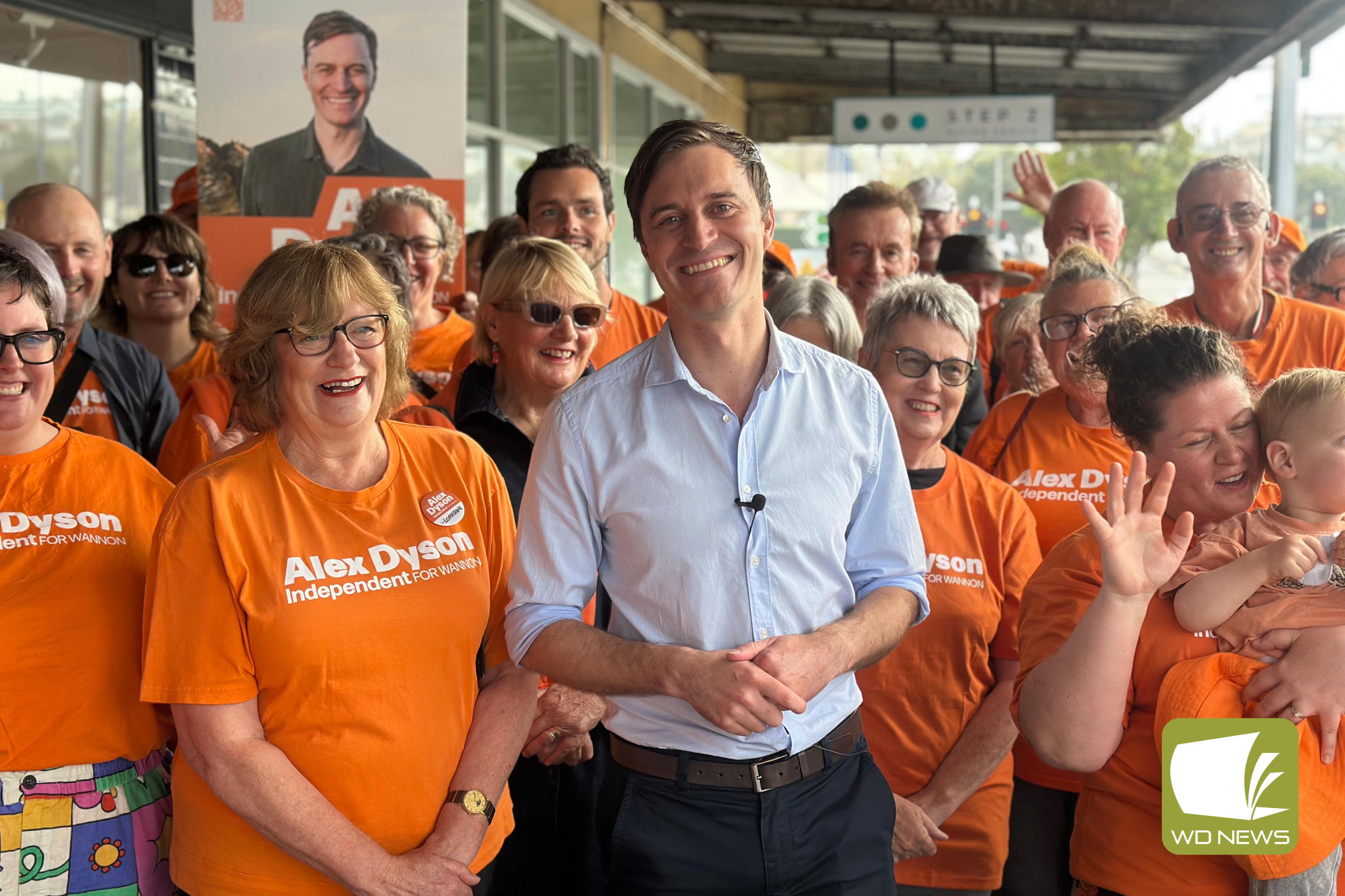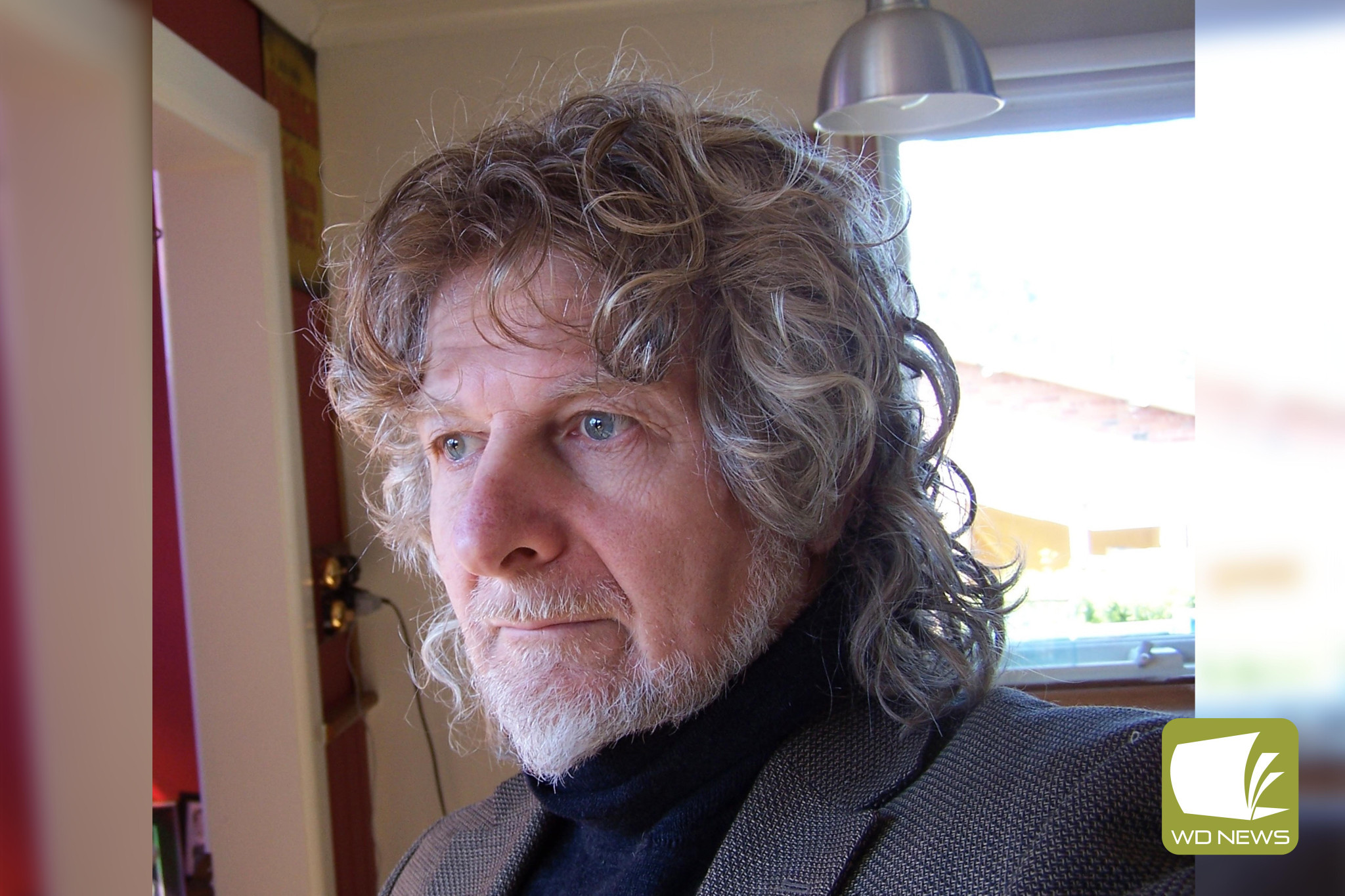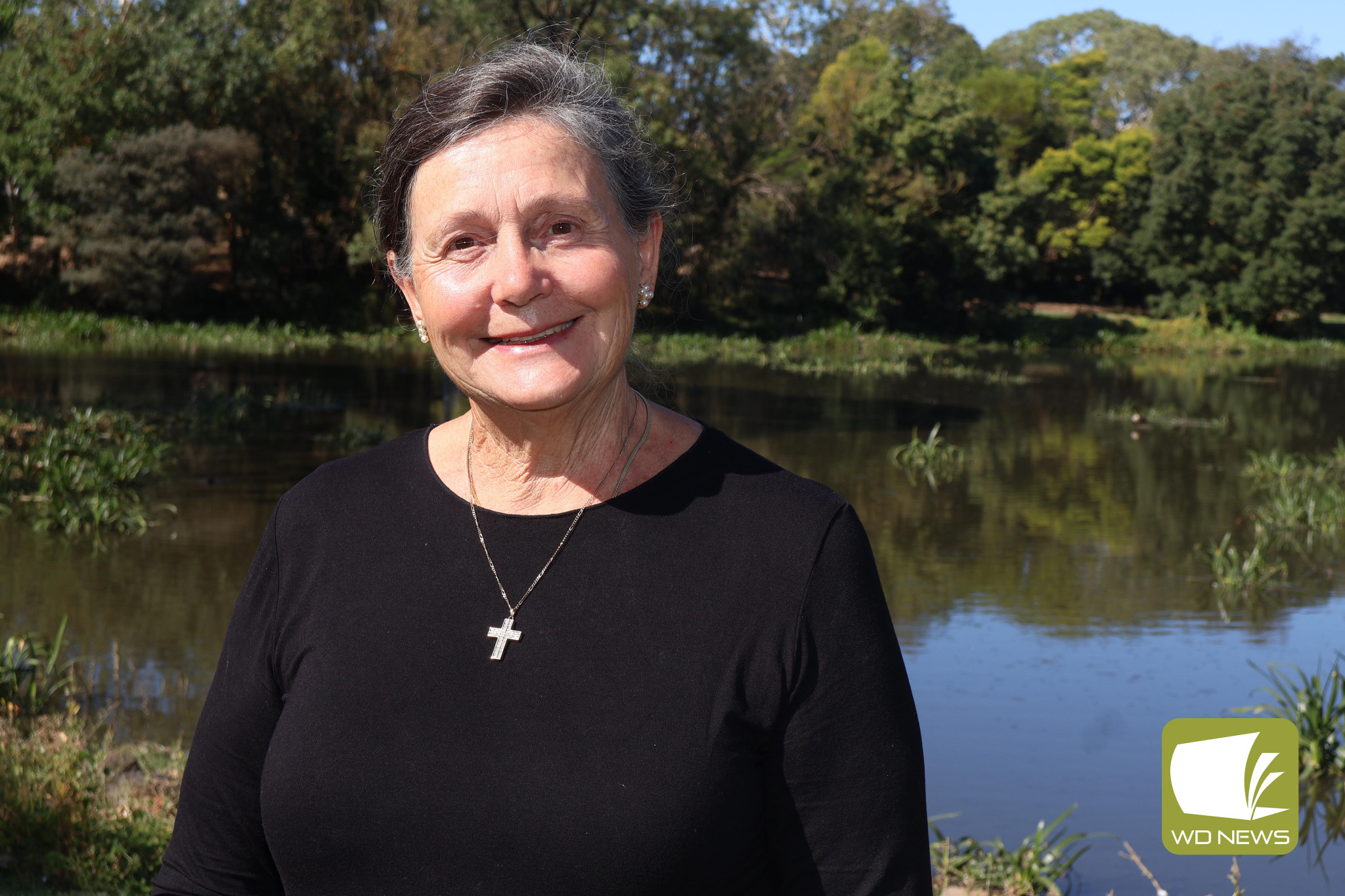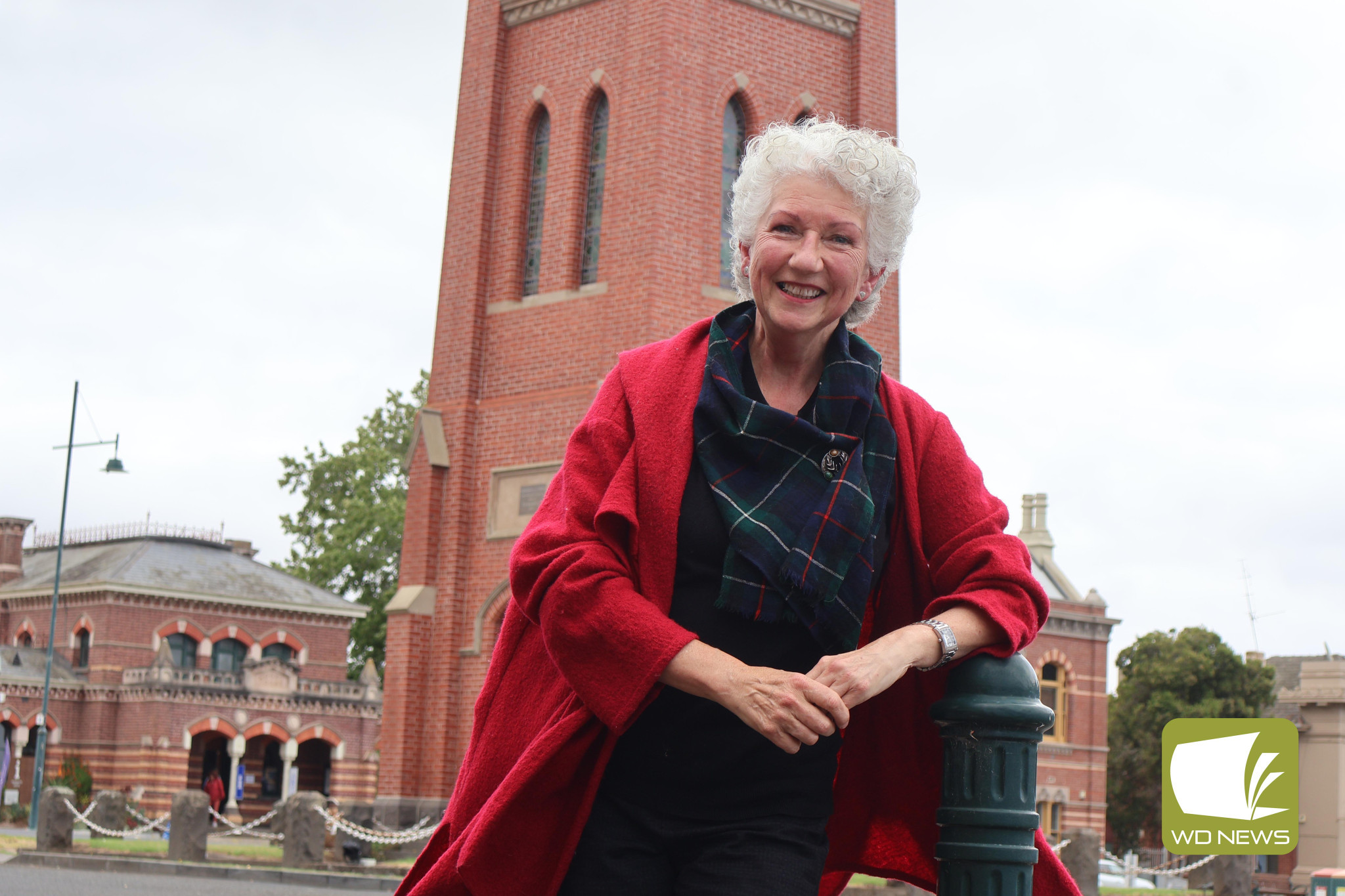Council
30 April, 2025
Candidates have their say ahead of federal election
CANDIDATES across Wannon are making their final pitches ahead of the 2025 Federal Election.

Residents who have yet to cast their vote will head to the ballots this Saturday to determine who will represent Wannon in to the future.
This year Alex Dyson (Independent), Lee-Ann Elmes (Family First), Kate Gazzard (Greens), Julie McCamish (Trumpet of Patriots), Robert Swan (Legalise Cannabis), Leo Curtain (One Nation), Dan Tehan (Liberal), Fiona Mackenzie (Labor) and Bernardine Atkinson (Independent) are all vying to represent the people of Wannon.
Western District Newspapers has invited each of the candidates to make their case to voters through a questionnaire.
Each candidate was sent the same questions, with their responses listed below in the order they will appear on the ballot.
Lee-Anne Elmes, Kate Gazzard, Julie McCamish, Leo Curtain and Dan Tehan did not respond prior to publication.
Why did you choose to run in this year’s election?
Alex Dyson, Independent: I’m running to get a better deal for our region.
After 70 years as a safe seat, the Labor Party ignores us and the Liberal Party takes us for granted – the state of our roads says it all.
This is my third time running as an Independent, I don’t give up easily.
I’m backed by a grassroots, people-powered movement from all walks of life and political backgrounds who want to put community and integrity back into politics.
We came within four per cent of victory in 2022.
Now, with more than 1000 volunteers, 1600 individual donors and 3500 supporters, together we can turn Wannon Independent and finally secure the representation our region deserves.
Robert Swan, Legalise Cannabis: To represent the 12,000 people in Wannon who use cannabis recreationally and probably an equal number who use it medicinally.
Last year 77,000 Australians were arrested for possessing and using cannabis at a cost of $2.1 billion to taxpayers.
Smoking a joint or eating a cookie is no different to enjoying a beer of a wine. Probably less harmful.
So why are people’s rights to enjoy themselves without harm or without harming others, being prosecuted.
Last year nearly 500 people were arrested for cannabis in Wannon.
Most of them were otherwise law-abiding citizens who will now carry a criminal conviction to job interviews, dating sites and many other areas.
Their families and friends will also be affected.
None of the existing parties represent these people or those who care for them.
Fiona Mackenzie, Labor: I chose to run in the Election because I want to see that people have a secure future, with the best opportunities.
Bernardine Atkinson, Independent: I became alarmed when Peter Dutton said nuclear power would be a civil exercise, meaning privatised electricity supply.
Nuclear always needs to be managed with direct political accountability to the people.
It must be a civic amenity with costs kept low.
These benefits are lost in the private world where profit-concerns dominate, costs escalate and there is no obligation to do what’s best for the recipients.
I have studied earth sciences and nuclear power, written books to end confusion, dispel myths and help us realistically tackle climate change.
We can safely implement nuclear technology to help make Australia a prosperous and an ecologically-sustainable nation, but we need informed leadership to make such changes happen.
Some of the problems we face are daunting but I hope to inspire, end confusion and misinformation, and generate confidence that we Australians can repair, restore, renew, rehabilitate and replenish people’s lives and the natural world.
What would you like voters to know about you?
Alex Dyson, Independent: I was born and raised in Warrnambool and went to Warrnambool Primary School then Warrnambool College.
I got my first radio gig on community radio in Warrnambool before landing a job with Triple J.
Now in addition to broadcasting, I am a small business owner and an author.
I’m a people person. I spent years listening to people as a radio host and grew frustrated when politicians weren’t listening to the people they’re supposed to represent.
Now living in Warrnambool again, I’m passionate about working with the community to push for what we need.
Robert Swan, Legalise Cannabis: I’m 73 and have been advocating for cannabis law reform since 1970.
I have a healthy and youthful outlook on life and spend half my time living on a registered wildlife reserve in the bush and half with my partner, former Sex Party MP, Fiona Patten, in Melbourne.
Politically I’m a centrist, socially I’m progressive.
My father fought in the Second World War as a fighter pilot and I was a draft resister during the Vietnam War.
During the mid-1980s I lived in Canberra and was the editor of the political humour and satire magazine, Matilda.
I copped $17 million worth of defamation writs from politicians of all flavours so I’m very well versed in their wily ways!
Before that I was the editor of the alternative lifestyle magazine, Simply Living.

Fiona Mackenzie, Labor: I am committed to social values of fairness and justice.
I raised my daughter and cared for my parents, as I worked as a teacher and so understand the need for good childcare, good aged-care, good health and the value of education.
I have also worked in hospitality and in the metal industry and value hard work and enterprise.
Bernardine Atkinson, Independent: I want voters to know that while I’m not a politician, I am a good problem-solver and, with me in Parliament, the “more for me mob” will have to move over and let the “fair go for all folk” take control.
I am committed to renewing Australia for prosperity for all her people, and for restoring, repairing, rehabilitating, replenishing ecosystems and ending extinctions.
The best place to make these changes is locally, so, realistically funding Local Government is a top priority, and, through providing National Service employment opportunities, we can permanently end too many people going without.
Renewing rural Australia can happen by accommodating, training and deploying entire regiments of National Service men and women for Disaster Relief, Home Guard Defence, Community Welfare Support and Ecological Sustainability projects: service, not as an obligation, but as an honourable pursuit.
What are the most important issues voters have raised with you?
Alex Dyson, Independent: Roads are the top issue for voters.
I’ve clocked up more than 20,000 kilometres over the last year travelling across Wannon to hear from locals.
Everywhere I go, people tell me they’re tired of the neglect from the major parties, especially when it comes to fixing our roads.
Rising cost of living and doing business comes up consistently – especially for farmers doing it tough after two years of dry conditions.
People are also struggling to access a GP, to find care for their children and to find quality care for older people.
It’s just not good enough – and all comes back to the major parties not prioritising funding for our region.
Robert Swan, Legalise Cannabis: Of course the usual…cost of living, Donald Trump, politicians being ignorant of real people’s problems, Donald Trump, wars in the Middle East and Ukraine, Donald Trump!
Fiona MacKenzie, Labor: The most important issue is the cost-of-living, and that’s why Federal Labor is delivering cost of living relief.
Inflation is down, wages are up, unemployment is low and interest rates have started to come down.
We’ve delivered tax cuts for every taxpayer, energy bill relief for every household, cheaper medicines, cheaper child care, boosts to Commonwealth rent assistance and cut student debt.
And we’re not done.
A re-elected Albanese Labor Government would deliver further tax cuts for every taxpayer, a $1000 instant tax deduction for workers and an extra $150 in energy bill relief for every household to the end of 2025.
In contrast, Peter Dutton and the Coalition have repeatedly voted against cost of living relief.
Bernardine Atkinson, Independent: Income security for farmers. Giving them greater income security is a priority.
This may include: assisting with B&B budget-bunk and/or lux accommodation for cycling-tourists to taste country life; paying rural people to oversee National Service projects; buy-back and lease arrangements to retain family-farming-knowledge; drought relief by subsidising water and fodder costs; ending nonsense land taxes and fire levys.
Cost of living. Easy: end unemployment and lower interest rates through government-owned bank interest rates fixed at two per cent; provide mums with a mothering allowance and allow dads to ‘income-split’ to end the terrible financial pressure for mothers to rapidly find outside employment and let Dads resume being a family’s champion.
Nuclear Family breakdowns; declining public morality; violence in the home and on the street; social media replacing careful scholarship; heavy traffic on roads; lack of infrastructure in new build estates; housing affordability.
All of these problems will have unique solutions. Well-financed, local governments, overseen by responsible councillors, can fix these problems.

What are the core policies you would look to bring to government?
Alex Dyson, Independent: If elected, I will push for urgent, practical solutions to the key issues facing our communities.
I’ll fight to make providing safe roads the law. My Right to Safe Roads Bill would ensure money goes where it’s needed, not just where politicians want to win votes.
I will work hard to reduce the cost of groceries for all Australians by tackling price gouging, and ensure farmers and other local suppliers are treated more fairly by big supermarket corporations.
I will fight to help farmers, businesses and families take control of energy bills with grants for rooftop solar and batteries to cut energy costs and climate pollution.
As a strong Independent voice for rural and regional Australia, I can work with other Independents to get stronger action across childcare, healthcare and aged care. With the right investment in training and infrastructure, we can end childcare waitlists, attract more rural and regional GPs, improve aged care services and double mental health support through Medicare.
Robert Swan, Legalise Cannabis: First would be to decriminalise and tax cannabis with the considerable proceeds going to education, health and better public education of drugs.
In the last financial year in the US state of Colorado (not that different from Victoria) more than AU$300 million was raised from legal cannabis taxes with the bulk of it going to public education and health in regional areas.
I would also look to bring Australia’s vaping laws into line with NZ and the UK in an effort to get tobacco smoking rates down to less than five per cent.
After that I would be advised by the people of Wannon as to what they would want.
Fiona MacKenzie, Labor: I would work with the State government and six councils to prioritise community needs.
In particular, I would be focused on strengthening Medicare.
This week Labor has announced the establishment of 1800MEDICARE – a free, nationwide 24/7 health advice line and afterhours GP telehealth service, backed by Medicare.
Medicare Urgent Care Clinics and 1800MEDICARE will fill a gap in the health system that widened dangerously under the former Liberal Government.

Bernardine Atkinson, Independent: I cannot imagine any Federal Representative not supporting providing Local Governments a fair share of GST revenue.
$28 Billion divided amongst Victoria’s 70+ Local Governments gives each more than $355 Million annually. That, combined with Federal and State Public Servants’ advice, will empower all our communities with opportunity for world’s best practice to happen locally.
I also think ‘big picture’. We have ten Top End rivers, planned in 1960s for wet-season water-harnessing to create green belts along the West Coast and into the interior.
Going forward with that will create thousands of jobs in horticulture, forestry, agriculture – desperately needed for our hungry world.
Forest trees are the lungs of the planet: we’ve lost 80 per cent of their capacity for absorbing carbon and freeing oxygen.
Critical to do our part in reversing this global loss, now.
I have nine other principle policies. I will work hard to ensure they are supported by all those elected federally.
If elected, what will you aim to achieve for the people of Wannon?
Alex Dyson, Independent: I love our region, and as a community Independent, I want to work with locals to get the funding we need to thrive. I’ve heard firsthand the challenges we face – and the solutions as well, with communities coming together to fight for what we need and take innovative approaches.
Together we can get a better deal for Wannon – fix our roads, end waitlists for healthcare, aged care and childcare, and see our farmers get the support they need, because when farmers do well, our communities do well.
Robert Swan, Legalise Cannabis: As a federal MP what you can do for your local constituents is largely tied to how the feds and states carve up their budgets so no promises there as an independent.
But I’m an experienced lobbyist who knows his way around Canberra better than most and I reckon I could cajole, wedge and argue future government into increasing funds for health and education in Wannon better than most others.
I’d also like to set up much better drug awareness centres and to provide parents with a full-time counselling and help service for kids struggling with real drug issues - i.e. heroin, cocaine, meth etc.
But I’d rather talk to the voters and see what they want me to achieve rather than tell them what I want to achieve.
Fiona Mackenzie, Labor: Wannon is the most beautiful area, and I want to ensure that we preserve the best that this diverse region offers, and keep moving towards a self-sufficient secure economy, where agriculture and ‘Made in Australia’ manufacturing is powered by renewables.
Bernardine Atkinson, Independent: In Wannon, we need careful decentralization.
More employment. Inexpensive, reliable uranium-generated electricity.
We need wind towers to use their intermittent, direct currents for local manufacturing. Cycling paths between towns.
Increased capacity in local hospitals, including overnight care.
Rail freight hubs and fewer long-haulage trucks.
A national educational curriculum that includes classes on better relationships and good parenting, allows Bible Studies and ends prohibitions on prayer groups.
Excellent, inexpensive public transport.
Reticulated desalinated water-supply supplements.
Sewerage treatment and anaerobic digesters for fertilizer-making.
Help for farmers to protect remnant habitat and improve wildlife survival.
Funds/tax incentives for supporting agro-forestry plots on farms.
The Great Ocean Road – hazardous. Planning and making the world’s best, slow-moving, meandering-through-forest, rural landscapes and along the ocean-front, electric touring bubbles (rail or funiculi) to leave the old road for local traffic.
Read More: local